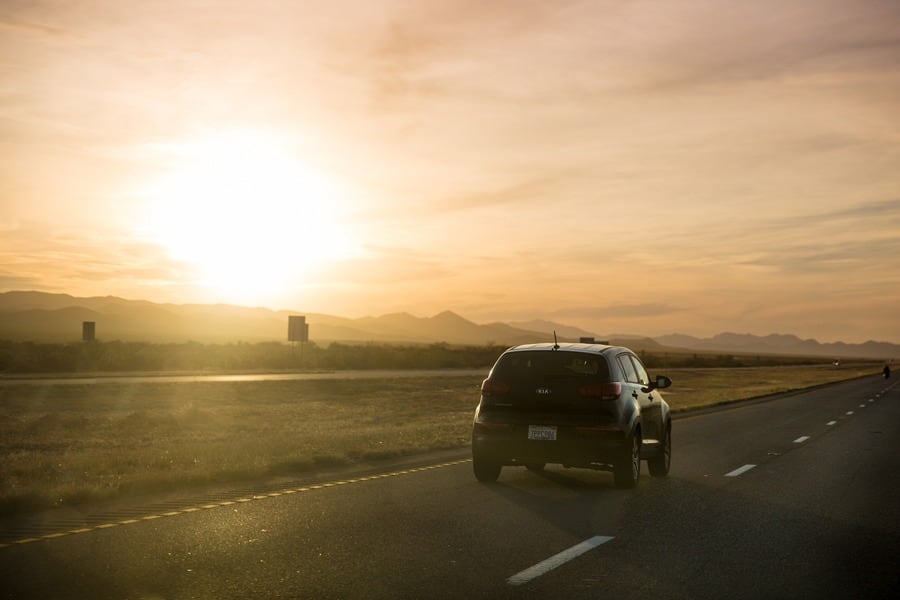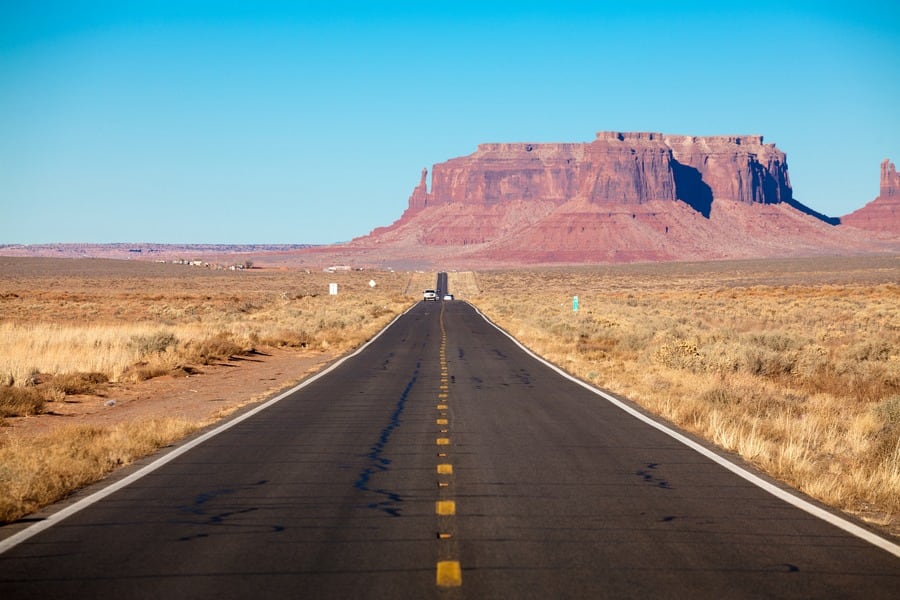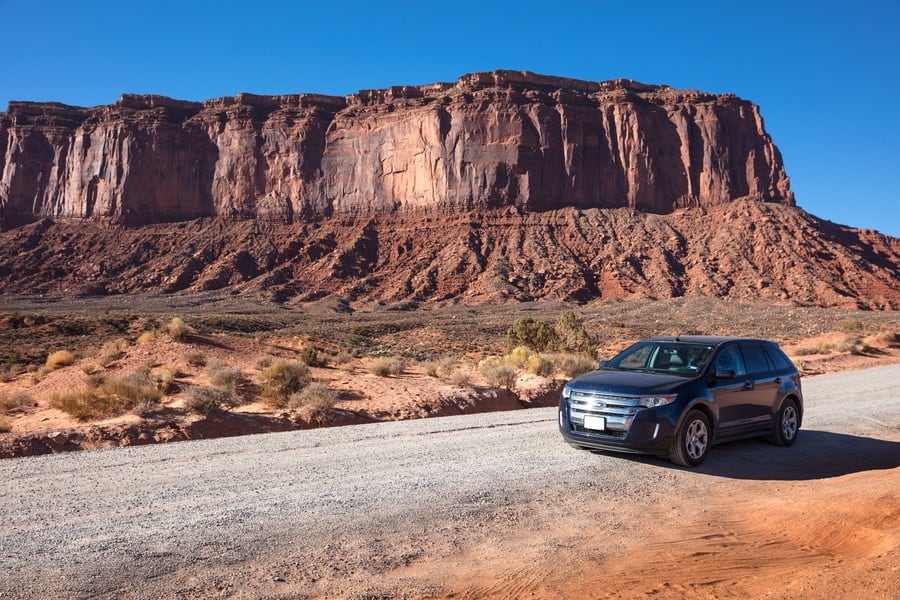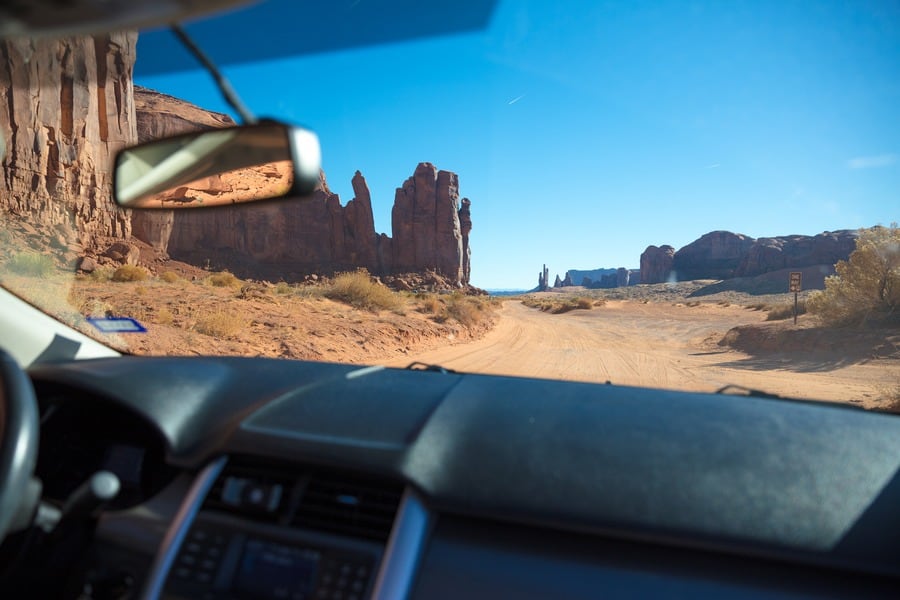Ah, the wide open road! I love road trips. It’s the epitome of freedom – go wherever you want, whenever you want. Discovering new destinations, soaking up the sights. Your favourite tunes playing, tasty snacks, and great company.
But there are risks too. Renting a car on your next vacation may seem straightforward, but the process can be fraught with peril. Especially when you’re in a foreign country. I’ve hired dozens of cars all over the world, and learned a lot of these lessons the hard way. Benefit from my experience and don’t make these 19 nauseating car rental mistakes.

Tip: I recommend using RentalCars.com to find quality rental cars at reasonable prices all over the world.
1. Choosing an unreliable hire company
The first mistake is an easy one. Perhaps you’re in a rush, or you just want to save a few extra dollars. Maybe that super, super cheap rental price seems too good to be true. Chances are it is. Wherever possible I try to stick with one of the big car rental chains to ensure the car quality is up to scratch. I picked a new, smaller agency recently and ended up with a car that felt like it was held together with sticky tape. It was so old, I’m pretty sure it had grey hair.
2. Choosing the wrong car
When I used to travel with more luggage, I found it tricky to work out if all my luggage will fit in the trunk (boot). Choosing a car that’s too small (or too large) is an easy car rental faux pas. I like that RentalCars.com shows the number of people, big suitcases and small suitcases that will fit in the car. If you’re travelling solo or with a wingman, the entire back seat is up for grabs, so often you’ll be able to get away with a smaller, cheaper car.
3. Not understanding car insurance
Car rental insurance is downright confusing. But you need to understand the fine print – what’s covered, what’s not, and what your obligations are.
Firstly, a few acronyms to remember:
- CDW (collision damage waiver): waives damage costs in the event of a collision but usually doesn’t cover “single vehicle damage” (such as rolling your car) or specific parts of the car (such as the undercarriage).
- TP (theft protection): covers the cost of replacing the car if stolen (but does not include if your possessions in the car are stolen).
- LDW (loss damage waiver): combines CDW and TP.
Most rental agencies in Europe, Asia, Africa and Australia will include CDW in the price, but some charge separately for this, particularly in North America, Central America, South America and the Caribbean.
While it may be possible to rely on your credit card for CDW coverage (as long as you pay for the rental with your specific credit card), check the bank’s fine print on that as well, as I found my bank limited the amount of time for coverage and didn’t include specific countries (I’m looking at you, Ireland!).
Agencies in Italy and Ireland force you to pay extra for CDW coverage even if your credit card includes it. To add to the confusion some car rental portals, like RentalCars.com, often include CDW and TP, and when you pick up the car the agent may try to convince you to still pay for it again (so print out your rental agreement ahead of time, and decline to pay for the same thing twice).
4. Paying for excess reduction
I don’t recommend paying extra to reduce your CDW/LDW “excess”- the amount payable in the event of damage or loss to the car - provided the excess amount doesn’t exceed the amount you are covered for under your travel insurance policy. Good quality travel insurance is essential, regardless of car rentals. I found Southern Cross Travel Insurance will cover your excess up to AU$5,000 per policy, provided you meet their terms and conditions. For example:
- You’ll need to ensure the car you hire is from a licensed motor vehicle rental company
- The driver (if not you) must be covered under your policy and you must be a named driver on the car rental agreement
- You’ll need to follow all local driving laws and rules of your destination, and keep to formed or paved roadways or carparks
- You mustn’t breach any of the terms in your car rental agreement
Just remember to double check with the rental agency’s excess amount.
5. Driving where you’re not covered
There are some sensible limitations to most car rental coverages, such as don’t drive a standard 2-wheel drive car in sand or don’t cross certain international borders, but others may be more subtle. The most common one is a limitation to the towing distance in the event of a breakdown. If you’re planning on driving to remote locations, be aware of this potential gotcha upfront. Off-road use is usually not covered, so make sure you only use rental vehicles on formed or paved roadways and car parks.
6. Drink driving
If you let down your hair and have fun on your holiday, that’s one thing. But driving under the influence of alcohol or drugs may negate the validity of your insurance. It may also limit your travel insurance coverage.

7. Paying for extras you don’t need
Car seats, GPS units, and roadside assistance, oh my! When I travelled with young children I simply bought a car seat from Walmart for a fraction of the cost compared to renting it. Almost every time I’ve picked up a rental car, I’ve been offered a larger car for an extra cost. Just say no. If the car size you rented isn’t available, they should upgrade you at no extra charge. A lot of agents get paid commissions for these extras, so don’t give into the hard sell. And before signing anything, double check your contract doesn’t have any extras sneakily added to it.
8. Paying for toll road
In some locations this is unavoidable, but other times if you can pay for toll roads in cash at the pay station it usually works out cheaper than paying the dreaded generic “administration fee” that rental car agencies absolutely love.
9. Dodging parking and speeding fines
If you get a fine, it’s best to pay it straight away if you can, otherwise the rental agency will likely charge an administration fee on top, and then take the funds off your credit card anyway.
10. Fictitious bumps & scratches
I was stung on the very first car I rented. After dropping it off and returning the keys, the rental agency called 4 hours later to say they found a large scratch on the side of the car. If that was the case, someone else caused that but they stung me for the repair costs. Carefully take photos with your smartphone of any bumps and scratches when you pick up the car to prove that they were already there. Take a note of the sales assistant’s name. If there are any problems when you return the car, sort them out on the spot.
11. Paying for petrol upfront
Most agencies require you to either return the car with the same amount of petrol or a full tank. Otherwise the rate they charge you is usually much, much higher than what you’d pay for normally (up to 300% mark-up!). Locate the nearest petrol station near the rental agency (I bookmark it on Google Maps), so you can stop there when returning the car. Make sure it’s less than 10km away. Keep the receipt from the petrol station and take a photo of the petrol gauge when returning the car just in case they later claim the car was brought back without a full tank.
12. Not at airport
On many car rental aggregator websites, even though you select a pick-up location at a specific airport, the rental agency might not actually have the car onsite. In the case of one recent car rental, I had to call the agency and they sent a shuttle to pick me up after 20 minutes, and then it was another 20 minute drive to their location. If I was in a rush, I could have been in trouble. Do your research and compare car hire branch locations beforehand.
13. DIY repairs
If there’s a problem with the car, call their support line before getting any repairs done, otherwise you may be out of pocket if they don’t reimburse you.

14. Extra drivers
Some rental agencies will charge extra for an additional driver, so unless you absolutely need it, don’t add them on.
15. Forgetting your driver’s license
This is pretty self-explanatory. An easy stuff-up. So check your wallet before you leave your home.
16. Forgetting the credit card deposit
Don’t max out your credit card before renting a car. Some agencies will put a hold or charge a deposit of $1000 or more on your card.
17. Credit card name
Ensure the name on the credit card matches the primary driver, otherwise most rental agencies will reject or cancel the booking.

18. Booking at the last minute
By booking ahead of time you often receive the best rates. Agencies know that if you’ve left it to the last minute, you probably are less organised and will be willing to pay extra for the convenience.
19. Not checking the credit card statement
After you return your car, the rental charge will finally end up on your credit card statement. Double check this matches up with the contract you signed. And if sneaky rental agencies keep charging extra amounts later, call them up to find out what they’re for. If it’s an alleged speeding or parking fine, ask for a copy to be emailed to you to verify. Fight the additional charges where applicable.












Reader Comments...
"I respond to every comment by direct private email. I look forward to your feedback" - Josh BenderSaw your site. It seems quite insightful. Thanks for the post.
Thanks for sharing the post.
This is so awesome to read, this not wasting my time
Definitely needed this information now. Thank you for posting and give me what I need to know.
I am so happy that I found this article. This was the topic that I need to learn.
Existing without the answers to the difficulties you’ve sorted out through this guide is a critical case, as well as the kind which could have badly affected my entire career if I had not discovered your website .
Needed to compose you a very little word to thank you yet again regarding the nice suggestions you’ve contributed here.
Thank you a lot for providing individuals with a very spectacular possibility to read critical reviews from this site.
Amazing write-up! I feel Glad to have found this article. Thanks for sharing such a useful piece of knowledge. Always a fan of your work.
This was a great post! You really gave me some helpful information. Thanks so much!
Write Your Comment
Please DO NOT include links, URLs or HTML in your comments - they will be automated deleted and you will waste your time.